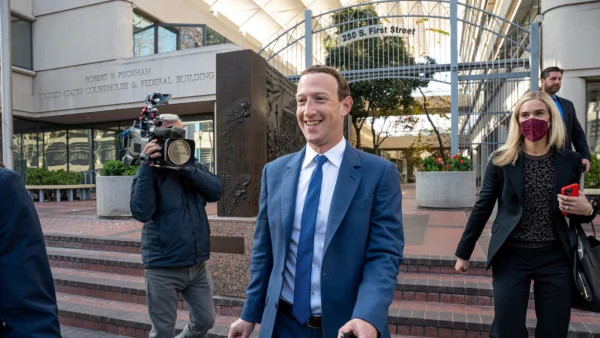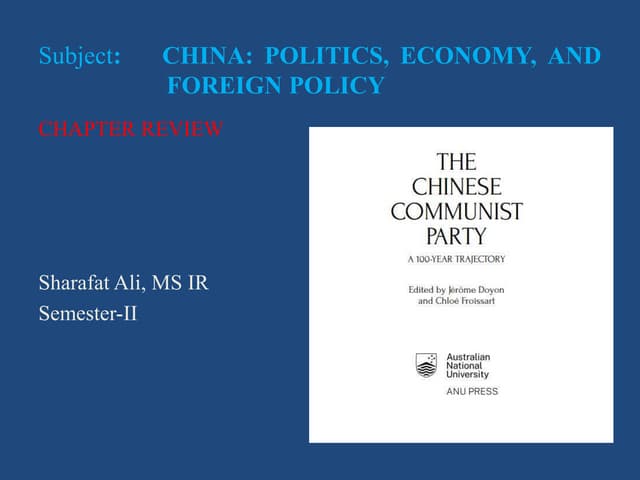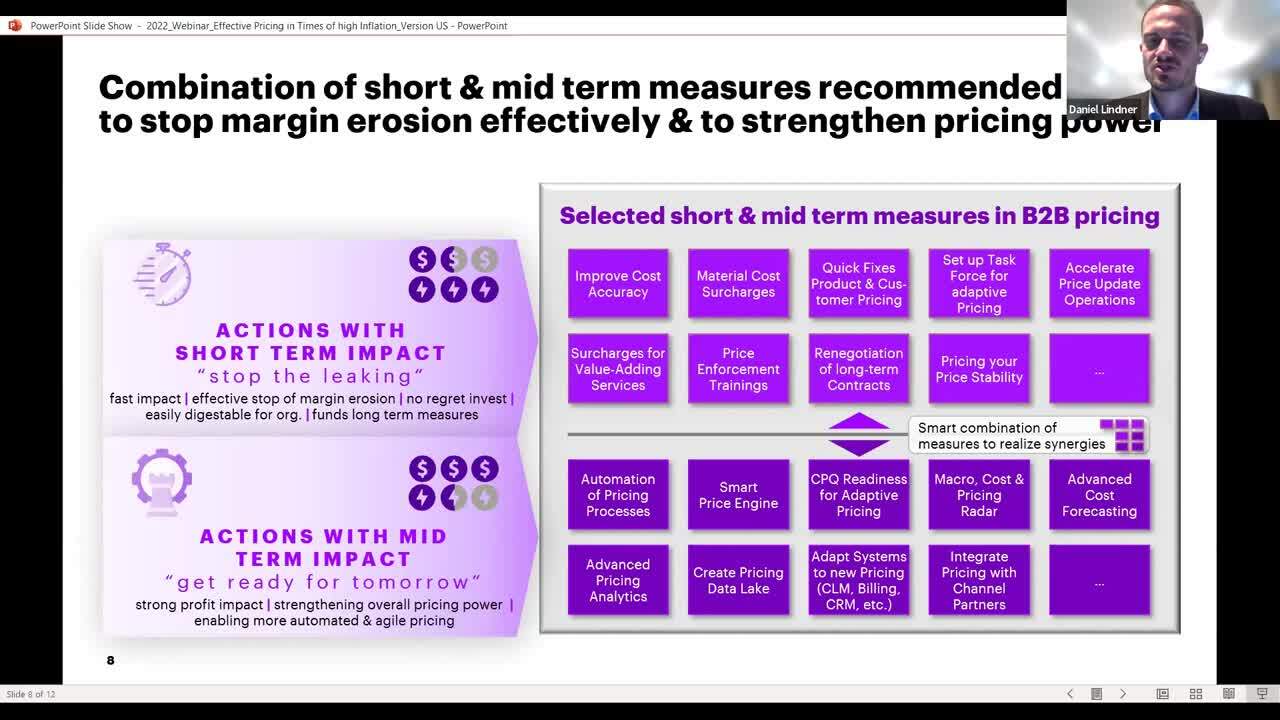How Trump's Presidency Will Impact Mark Zuckerberg And Meta

Table of Contents
The Rise of Misinformation and Political Advertising
The Trump era saw a dramatic escalation in the spread of misinformation and the use of targeted political advertising on social media platforms. Meta, as the dominant player, bore the brunt of the consequences.
Facebook's Role in Spreading Misinformation
Facebook became a breeding ground for misinformation during the Trump presidency, significantly impacting the 2016 and 2020 elections.
- Russian interference: The Mueller investigation revealed extensive Russian efforts to manipulate the 2016 election through Facebook ads and the spread of divisive content.
- Cambridge Analytica scandal: The harvesting of user data by Cambridge Analytica and its use in targeted political advertising exposed serious vulnerabilities in Facebook's data security and raised concerns about privacy violations.
- Spread of conspiracy theories: Facebook algorithms inadvertently amplified the spread of conspiracy theories and fake news, contributing to a climate of distrust and polarization.
- Impact on public trust: The proliferation of misinformation on Facebook significantly eroded public trust in the platform and its ability to moderate content effectively. This led to increased calls for stricter regulation of social media.
Keywords: Facebook misinformation, election interference, fake news, social media regulation, Cambridge Analytica, political manipulation, disinformation campaign.
Navigating Political Advertising Regulations
Meta faced immense challenges in regulating political advertising on its platforms during the Trump era. The ongoing debate surrounding transparency and accountability continues to impact the company's operations.
- Foreign interference in elections: The use of Facebook for foreign interference in elections became a major point of concern, highlighting the need for stricter verification and transparency measures.
- Campaign ad spending: The sheer volume of campaign ad spending on Facebook raised questions about the platform's influence on election outcomes and the potential for manipulation.
- Transparency requirements: The demand for greater transparency in political advertising led to increased scrutiny of Meta's policies and practices.
- Content moderation difficulties: Effectively moderating political advertising without appearing to censor free speech proved an incredibly difficult task, leading to criticism from both sides of the political spectrum.
Keywords: Political advertising, Facebook ads, campaign finance, transparency in advertising, ad regulation, political speech, election integrity, targeted advertising.
Increased Scrutiny and Government Regulation
The Trump presidency ushered in an era of increased scrutiny and government regulation for Meta, impacting its business model and operations.
Antitrust Investigations and Legal Battles
Meta faced intensified antitrust investigations and legal battles during Trump's presidency, primarily focused on its monopolistic practices and data privacy concerns.
- Antitrust lawsuits: Multiple lawsuits were filed against Meta alleging anti-competitive behavior and stifling innovation in the social media market.
- FTC investigations: The Federal Trade Commission launched several investigations into Meta's business practices, focusing on its acquisition of Instagram and WhatsApp.
- Data privacy concerns: Concerns about Meta's data collection practices and its use of user data fueled calls for stricter data privacy regulations.
- Competition from other social media platforms: The increased regulatory pressure and public scrutiny spurred competition from other social media platforms aiming to capture market share.
Keywords: Meta antitrust, Facebook monopoly, government regulation, data privacy legislation, tech regulation, competition law, monopolistic practices.
Section 230 Debates and Content Moderation
The debates surrounding Section 230 of the Communications Decency Act intensified during the Trump presidency, significantly impacting Meta's content moderation policies.
- Section 230 repeal efforts: Efforts to repeal or significantly alter Section 230, which shields online platforms from liability for user-generated content, placed Meta in a precarious position.
- Content moderation challenges: Balancing free speech with the need to combat misinformation and hate speech became an increasingly complex and controversial challenge for Meta.
- Censorship accusations: Meta faced accusations of censorship from both the left and the right, highlighting the political sensitivities surrounding content moderation.
- Impact on free speech: The ongoing debate about Section 230 and content moderation had a significant impact on the broader discussion about free speech online.
Keywords: Section 230, content moderation, free speech, censorship, online safety, hate speech, misinformation, platform accountability.
Impact on User Engagement and Brand Perception
The political polarization fueled by Trump's presidency significantly impacted user engagement on Meta's platforms and its brand perception.
Political Polarization and User Behavior
The highly polarized political climate affected user behavior in several ways.
- Echo chambers: Facebook's algorithms contributed to the creation of echo chambers, reinforcing existing biases and limiting exposure to diverse perspectives.
- Political tribalism: Online political discourse became increasingly tribalistic, with users engaging primarily with those who share their views.
- Decreased civility in online discourse: The level of civility in online political discussions declined sharply, leading to increased harassment and abuse.
- User exodus: Some users left Facebook in response to the platform's perceived failure to adequately address misinformation and harmful content.
Keywords: Political polarization, online echo chambers, social media addiction, user engagement, brand reputation, online toxicity, digital well-being.
Long-Term Effects on Meta's Brand and Reputation
The Trump era left a lasting impact on Meta's brand and its efforts to regain user trust.
- Brand damage control: Meta has undertaken significant efforts to repair its brand image and address criticisms regarding misinformation and data privacy.
- Rebuilding trust: Rebuilding trust with users and regulators is an ongoing process that requires sustained commitment to transparency and accountability.
- Corporate social responsibility initiatives: Meta has increased its focus on corporate social responsibility initiatives, aiming to demonstrate its commitment to positive social impact.
- Impact on investor confidence: The controversies surrounding Meta during the Trump era have had an impact on investor confidence, affecting its stock price and overall valuation.
Keywords: Meta reputation, brand management, corporate responsibility, public relations, investor relations, crisis communication, trust building.
Conclusion
Trump's presidency significantly impacted Mark Zuckerberg and Meta, presenting numerous challenges related to misinformation, increased regulation, and the impact on user engagement and brand perception. The legacy of this period includes heightened scrutiny of social media's role in political discourse, ongoing debates about content moderation and Section 230, and a persistent need for Meta to rebuild user trust. Understanding the impact of Trump's presidency on Meta is crucial to understanding the future of social media. Continue exploring this critical relationship and delve deeper into the evolving landscape of online political discourse and its implications for Mark Zuckerberg and Meta.

Featured Posts
-
 Inside The Ccp United Fronts Influence In Minnesota
Apr 29, 2025
Inside The Ccp United Fronts Influence In Minnesota
Apr 29, 2025 -
 Tariff Uncertainty Drives U S Corporate Cost Cutting Strategies
Apr 29, 2025
Tariff Uncertainty Drives U S Corporate Cost Cutting Strategies
Apr 29, 2025 -
 Rebecca Lobachs Black Hawk Crash A Failure Of Communication
Apr 29, 2025
Rebecca Lobachs Black Hawk Crash A Failure Of Communication
Apr 29, 2025 -
 Thunder Over Louisville Fireworks Canceled Ohio River Flooding
Apr 29, 2025
Thunder Over Louisville Fireworks Canceled Ohio River Flooding
Apr 29, 2025 -
 Exclusive Insights Goldman Sachs Strategies For Managing Trump Era Tariffs
Apr 29, 2025
Exclusive Insights Goldman Sachs Strategies For Managing Trump Era Tariffs
Apr 29, 2025
Latest Posts
-
 Trial Of The Century Cardinals Legal Team Presents Evidence Of Prosecutorial Misconduct
Apr 29, 2025
Trial Of The Century Cardinals Legal Team Presents Evidence Of Prosecutorial Misconduct
Apr 29, 2025 -
 Cardinal Beccius Unfair Trial Claim Bolstered By New Evidence
Apr 29, 2025
Cardinal Beccius Unfair Trial Claim Bolstered By New Evidence
Apr 29, 2025 -
 Reviving Nostalgia Older Viewers And Their You Tube Habits
Apr 29, 2025
Reviving Nostalgia Older Viewers And Their You Tube Habits
Apr 29, 2025 -
 How You Tube Is Attracting A Growing Audience Of Older Viewers
Apr 29, 2025
How You Tube Is Attracting A Growing Audience Of Older Viewers
Apr 29, 2025 -
 London Real Estate Fraud British Court Upholds Vaticans Claim
Apr 29, 2025
London Real Estate Fraud British Court Upholds Vaticans Claim
Apr 29, 2025
